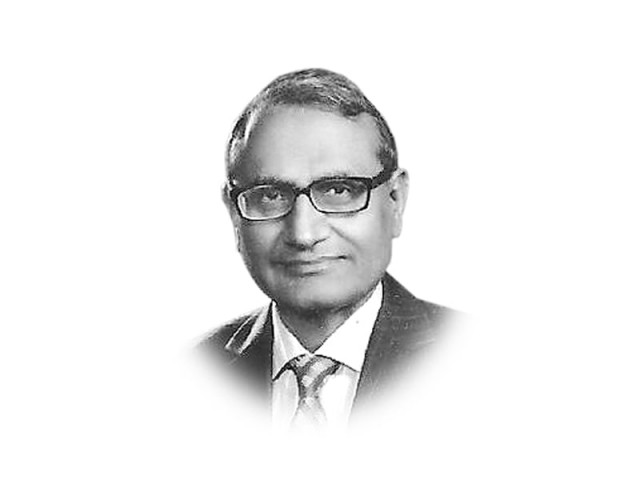Our corrupt ways
Continuing weaknesses of the institutional structure have allowed the costs of corruption to be more than the returns.

Studies on corruption are divided between those who think it greases the wheels and those who argue that it sands the wheels. According to the former, corruption thrives in weak institutional frameworks, which is the case in developing countries like Pakistan. Institutional reform is suggested to get rid of corruption. In its absence, corruption performs the function of greasing the wheels of an otherwise inefficient system. It compensates for the costs imposed by bureaucratic red tape by speeding up operations. Less or no time needs to be spent in long queues. Graft may even prevent policies with adverse consequences for businesses, groups or regions. Under centralised autocratic regimes, corruption is an incentive to encourage private investment and accelerate economic growth. Bureaucracy in a democratic, decentralised regime does not see itself as championing any economic goals. No wonder, the military regimes in Pakistan have been associated with the patronage of the private sector and high economic growth.
It seems that the grease has now turned into sand. Rather than promoting efficiency, the continuing weaknesses of the institutional structure have allowed the costs of corruption to be more than the returns. As it is an understanding rather than an enforceable contract, the incentive to cheat is the greatest, especially in an environment of violence, breakdown of order and an overall climate of uncertainty. In Pakistan, it is this sanding of the wheels that has put corruption at the forefront of political agenda. No amount of moral exhortation would have changed the game; nor has the plethora of donor-funded projects and programmes of institutional reform that, in essence, were bribes to change for the better. Millions of dollars have gone into reforming the civil service, the FBR, the justice system, energy distribution, the ‘hydrocracy’ in the irrigation sector, the land records and many other areas of governance. Huge amounts of aid money were spent on strengthening and reforming the economic ministries. Professionally, these ministries have never been more depleted.
The experienced reality that corruption just doesn’t work is much more powerful. This refers to those who have to pay the bribes: the youth looking for jobs or the businesses trying to find a way around bureaucratic knots. They are raising their voices against corruption. However, those who expect bribes and extract rents are not yet on the retreat. A deterrent accountability mechanism put in place by a consensus across the political spectrum is the only effective way to make sure that corruption does not pay. May one hope that the political stalemate on this issue of the gravest concern will lead to tangible progress before the elections, as Pakistan has slipped further down in the latest rankings of the Global Transparency Index and the Corruption Perception Index.
Published in The Express Tribune, December 7th, 2012.
















COMMENTS
Comments are moderated and generally will be posted if they are on-topic and not abusive.
For more information, please see our Comments FAQ